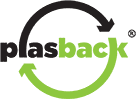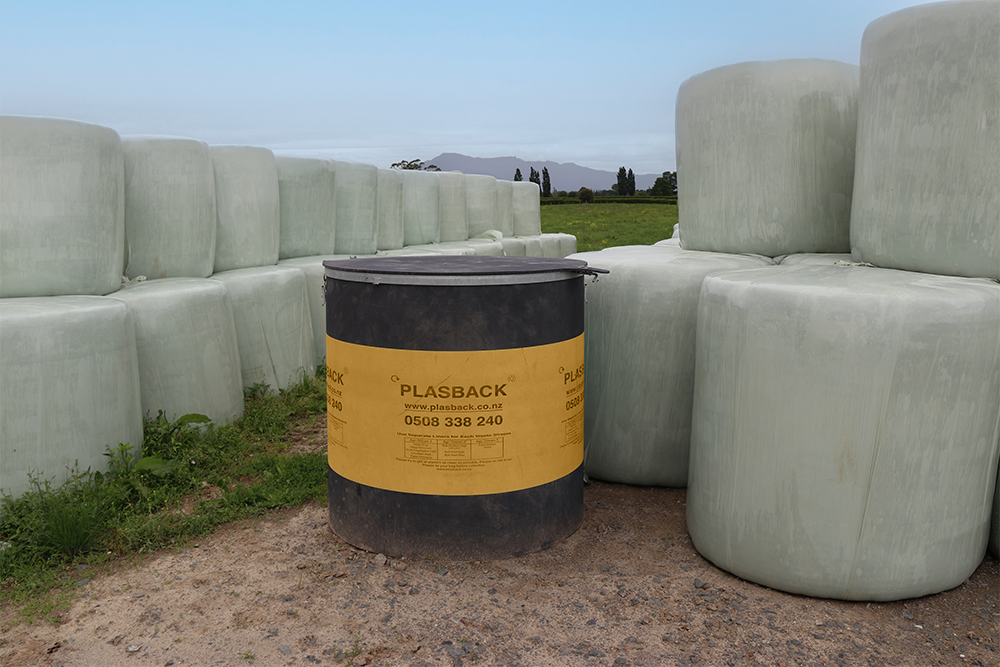Plasback runs an accredited scheme to recover farm plastics.
Setting up business in New Zealand in 2006, Plasback has gone from strength to strength when it comes to plastic recycling.
Plasback was one of the first Product Stewardship schemes for agriculture to receive accreditation from the Ministry for the Environment in 2010 and re-accredited in 2017. In 2022, 5500 tonnes of plastic were collected for recycling, double the amount in 2021, when 2600 tonnes mainly made up of bale wrap and pit covers were collected.
The reason for the increase is partly because of the Fonterra Cooperative Difference scheme in which dairy farmer shareholders are rewarded for sustainability practices. This includes recycling of waste plastic from ensiling feed but greater awareness and social conscience play a big part. Operating its original, and effective, bin-and-liner system, Plasback has collected more than 28,000 tonnes of waste since the scheme’s inception.
The collection includes bale wrap, silage pit covers, shrink wrap, pallet covers, polypropylene bags, high-density polyethylene (HDPE) containers, vineyard nets, irrigation pipes and polypropylene twine from farms and vineyards. As part of its continued commitment to Product Stewardship, Plasback now operates nine purpose-built balers nationwide, designed to improve the onward transport logistics from their main centres to the recycling plants, and have introduced new products made from recycled plastics such as Tuffboard, Tuffdeck, and Plaswood.
With its head office in Christchurch, the company has a reliable network of 13 independent contractors. Plasback commercial manager Neal Shaw says: “Customers who have their plastic collected are interested in traceability. They want to know where their plastic is going and what is the end product.”
Every piece of plastic collected from customers is recycled, 20 percent in New Zealand and 80 per cent overseas, but all is recycled.
Products produced from this recycling includes Tuffboard, builders’ film and recycled plastic pellets to be reused for making other plastic products.
Farm plastics are one of six waste streams that are in the process of being mandated. This means suppliers of plastic for use in the ag sector will be required to pay a levy, which in turn will be paid onto a Product Stewardship organisation, that will administer the funds for collection and processing of plastic. NZ agriculture’s effort to recycle its waste plastic is a good-news story that should be more widely known.
While the mandated scheme is on its way, the present system is still voluntary. Plasback is encouraging producers of plastics to be part of the Plasback scheme so the industry can manage the waste and the costs. Shaw says the hardest part are the “free riders”, those businesses that sell plastics but take no responsibility financially for the recovery and recycling of the product.
“There are plenty of forward-thinking businesses who have actually stepped up, but there are still plenty that are taking the wait-and-see approach,” he says. “This approach is more about avoiding costs associated with actively participating in recycling initiatives until they are compelled by government legislation.”
Getting behind the Plasback scheme is going to make this a better world for our children, and their children to come.
“Customers who have their plastic collected are interested in traceability. They want to know where their plastic is going and what is the end product.”— Neal Shaw, Plasback.
WASTE NOT
● In 2021-22, Plasback used over 40,000kg of waste plastics to make more than 1600 sheets of Tuffboard
● Plaswood is a wood alternative, resistant to rain, frost, and snow, and not affected by UV light
● Plasback now owns and operates nine purpose-built balers located throughout NZ
● Plasback has collected 12.2 million individual teat seals, weighing 17,000kg from 52 clinics
● Since 2006, Plasback has collected over 28,000 tonnes of waste plastic from the primary sector
TO BOOK A COLLECTION FREE PHONE : 0508 338 240, or click here

